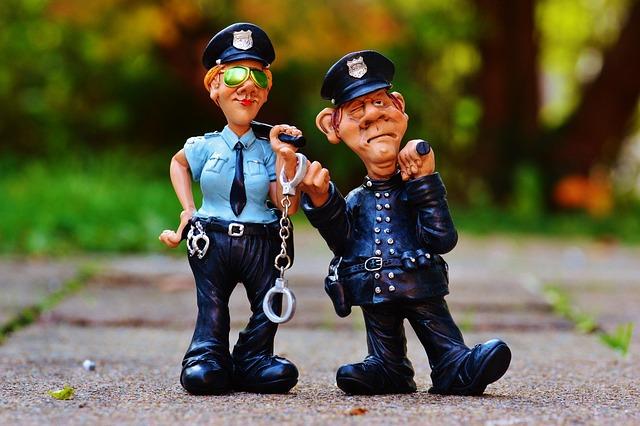This Cannot Be the New Normal: SJSU Ups Police Presence After Charlie Kirk Assassination
In the wake of the shocking assassination of conservative commentator Charlie Kirk, San Jose State University (SJSU) is taking decisive measures to enhance security on campus. The incident, which has sent ripples of concern throughout the academic community and beyond, has prompted university officials to reassess safety protocols and increase police presence to ensure the protection of students and faculty. As the investigation into Kirk’s tragic death unfolds, many are grappling with the implications of such violence in the realm of political discourse and its potential impact on campus life. This article explores the university’s response to the crisis, the broader societal context of political polarization, and the voices calling for a return to civility in public discourse.
San Jose State University Increases Security Measures Following Tragic Incident
In response to the recent tragic assassination of public figure Charlie Kirk, San Jose State University has announced a series of enhanced security measures designed to prioritize the safety of its students and faculty. The university community is grappling with the realities of such violence, as many have voiced concerns about the implications this incident has on campus safety. Increased police presence will include not just uniformed officers patrolling the grounds, but also heightened surveillance across the campus, and increased collaboration with local law enforcement agencies. University officials have emphasized their commitment to creating a secure learning environment, stating, “This cannot be the new normal.”
To address safety concerns and foster dialogue within the community, SJSU is rolling out additional initiatives, including:
- Weekly Safety Forums: Open discussions for students to voice concerns and suggestions.
- Self-Defense Workshops: Offering skill-building sessions aimed at empowering students.
- Crisis Response Training: Equipping faculty and staff with the tools to handle emergencies.
The university also plans to perform a comprehensive review of existing safety protocols to better protect its community and prevent future incidents. The tragic event has catalyzed a serious conversation around the measures needed to enhance public safety without compromising the open and inclusive environment SJSU strives to maintain.
Community Reactions and Concerns Surrounding Enhanced Law Enforcement Presence
In the wake of the tragic assassination of conservative figure Charlie Kirk, San Jose State University has ramped up its law enforcement presence on campus, igniting a mixed bag of reactions from the student body and the surrounding community. While some applaud the university’s proactive approach to safety, citing an increase in anxiety and fears stemming from such violent incidents, others express concern over the potential for heightened tensions and a feeling of over-policing. Students have voiced their discontent on social media platforms and during campus forums, highlighting that this heightened enforcement may create an atmosphere of unease rather than security.
Critics argue that a significant police presence may disproportionately affect marginalized groups on campus, emphasizing the need for a balanced approach to safety that incorporates community engagement and mental health resources. They suggest that the university should consider initiatives like safe space workshops, mental health support, and community policing efforts as alternatives to simply increasing officer visibility. The demand for dialogue with law enforcement and university officials has grown, as many believe that to prevent such incidents in the future, SJSU must cultivate a sense of community rather than fear.
Recommendations for Balancing Safety and Campus Freedom Amid Rising Tensions
As campus environments navigate the precarious balance between ensuring safety and preserving freedom of expression, it is vital for institutions like SJSU to implement strategies that foster both security and an open dialogue. Increasing community engagement can help alleviate tensions, given that students often feel disillusioned or alienated during crisis situations. Creating clear communication channels, such as town hall meetings or online forums, allows students and faculty to voice concerns and participate in shaping campus safety policies. Additionally, fostering partnerships with mental health organizations can offer support systems to those affected by violence and rising tensions.
Furthermore, implementing targeted training programs for campus safety personnel can play a crucial role in promoting a culture of understanding and respect. This training should emphasize de-escalation techniques and cultural competency, ensuring that officers are prepared to engage constructively with diverse student populations. Strategies may include:
- Regular workshops and simulations focusing on conflict resolution
- Involvement of student representatives in safety discussions
- Feedback mechanisms to continuously improve security measures
| Focus Area | Recommendation |
|---|---|
| Community Engagement | Host regular forums |
| Training Programs | Implement cultural competency workshops |
| Feedback Mechanisms | Provide anonymous surveys |
To Wrap It Up
In the wake of the tragic assassination of conservative speaker Charlie Kirk, San Jose State University is taking significant measures to bolster campus security. University officials have emphasized that this increase in police presence is not merely a reaction to one incident, but rather a proactive step in ensuring the safety of students and faculty amid a growing climate of political tension. As the SJSU community grapples with the implications of such violence, questions about the state of campus safety, freedom of expression, and the potential for polarization are at the forefront of discussions. University leadership has reiterated that, “This cannot be the new normal,” signaling a commitment to fostering an environment where diverse viewpoints can be expressed without fear. The coming weeks will be pivotal as the university seeks to navigate these complex challenges while ensuring the safety and well-being of its campus community. As the story unfolds, the implications of heightened security measures in educational spaces will undoubtedly continue to spark debate, reflecting broader societal concerns about safety, ideology, and the future of public discourse.









